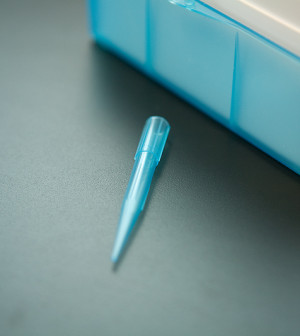- Could Artificial Sweeteners Be Aging the Brain Faster?
- Techniques for Soothing Your Nervous System
- Does the Water in Your House Smell Funny? Here’s Why
- Can a Daily Dose of Apple Cider Vinegar Actually Aid Weight Loss?
- 6 Health Beverages That Can Actually Spike Your Blood Sugar
- Treatment Options for Social Anxiety Disorder
- Understanding the Connection Between Anxiety and Depression
- How Daily Prunes Can Influence Cholesterol and Inflammation
- When to Take B12 for Better Absorption and Energy
- Epsom Salts: Health Benefits and Uses
Scientists Sniff Out Origins of Body Odor


There’s new hope for people plagued by body odor, with researchers pinpointing bacterial genes that play a major role in the malodorous scent.
The findings might someday lead to new ways to control the problem, the researchers suggested.
As the researchers explained, body odor occurs when bacteria on the skin break down molecules in sweat. In the new study, the researchers found the DNA in Staphylococcus hominis bacteria that produce the proteins that break down sweat molecules.
These proteins are responsible for breaking the sweat molecules into compounds that play a major role in body odor, the researchers said. These compounds are pungent in tiny amounts — as little as one part per trillion.
One of the genes found in S. hominis was also found in two other species of staph bacteria linked to body odor, according to the study.
The new research was to be presented Monday at the Society for General Microbiology’s annual meeting in Birmingham, England. Findings presented at meetings are generally considered preliminary until they’ve been published in a peer-reviewed journal.
“This work has significantly advanced our understanding of the specific biochemical processes involved in body odor production. It was surprising that this particular body odor pathway is governed by only a small number of the many bacterial species residing in the underarm,” study leader Dan Bawdon, from the University of York in the United Kingdom, said in a society news release.
He added that these findings could lead to better ways to control body odor.
Traditional deodorants and antiperspirants work by killing all types of underarm bacteria or by blocking the sweat glands, respectively. This research could lead to new compounds that specifically target the offending compounds, he said.
More information
The U.S. National Library of Medicine has more about sweat.
Source: HealthDay
Copyright © 2026 HealthDay. All rights reserved.










